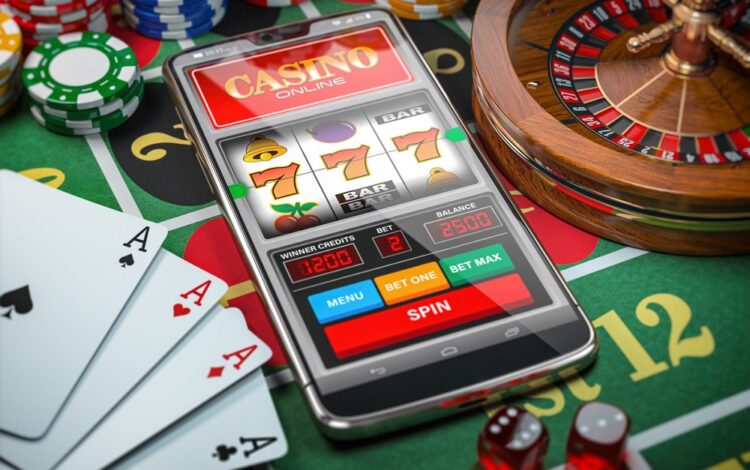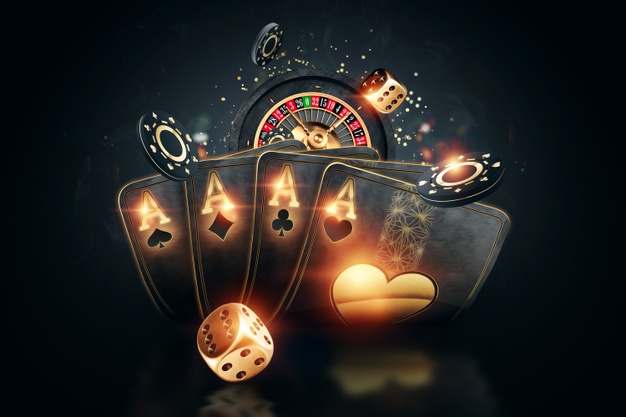Gambling, a pastime as old as civilization itself, taps into the complex psychology of risk and reward. But what drives us to place that bet, spin the wheel, or roll the dice? Is it solely the thrill of the win, the sting of the loss, or is there something deeper within our psyche that compels us towards these acts of chance?
This exploration delves into the multifaceted world of gambling psychology, offering insights into why the game’s allure is irresistible to many. Beyond the immediate excitement or despair lies a rich tapestry of psychological triggers: the allure of uncertainty, the seduction of potential gain, and the social camaraderie found in gambling environments. These elements, combined with our innate desire to test our limits and challenge fate, create a compelling scenario that many find hard to resist.
As we uncover the layers, it becomes evident that gambling is more than just a pursuit of monetary rewards; it’s a complex interplay of emotional, social, and psychological factors that captivate the human spirit.
Table of Contents
Understanding the Lure: The Basic Instincts

Source: livecasinomate.com
Humans, by nature, are risk-takers. From the early days of hunting for survival to modern financial investments, taking risks has been an integral part of human evolution. Gambling, in many ways, mirrors these primal instincts. It’s not just about the money; it’s about the challenge, the excitement, and the thrill of the unknown. Gaming solutions company like Beter.co recognize this inherent desire, providing gaming solutions that cater to the thrill-seekers and the calculated risk-takers alike, with live casino games designed to engage and entertain.
The Reward System: Dopamine and Delight
Our brains are wired to reward risk-taking behaviors. When we gamble and win, our brain releases dopamine, a neurotransmitter associated with pleasure and reward. This biochemical rush reinforces the gambling behavior, encouraging us to repeat the action in hopes of experiencing that high once again. This mechanism is not just limited to the moments of winning; even the anticipation of a win can trigger a similar response, making the act of gambling itself, regardless of the outcome, a source of psychological gratification. It’s a cycle that can be as rewarding as it is perilous, pushing us to chase losses or gamble beyond our means in pursuit of that dopamine-driven delight. The allure of this biochemical reward system can lead individuals down a path of increased gambling frequency and intensity, as the brain continues to seek out the pleasurable feedback loop created by these dopamine surges.
Social Dynamics and the Gambler’s Persona
Gambling is not just a solitary activity; it’s deeply rooted in social interaction. Whether it’s a poker night with friends or playing online games with people from around the globe, gambling offers a sense of community and belonging. It bridges geographical and cultural divides, creating a universal language of excitement and anticipation. In this arena, individuals can adopt a gambler’s persona, perhaps one that’s more daring and adventurous than in their everyday lives. This transformation, albeit temporary, is a powerful draw, offering a taste of a different life, if only for a moment. Beyond the thrill of the gamble itself, this sense of identity and the camaraderie developed in these social settings reinforce the allure of gambling. Players often revel in the stories and experiences shared at the table, further embedding the activity within their social fabric.
The Illusion of Control: Skill vs. Chance

Source: 21stcenturygambling.com
One of the most intriguing aspects of gambling is the illusion of control it offers. Many gamblers believe they possess a skill or strategy that can influence the outcome of what is essentially a game of chance. This belief in control is a compelling motivator, driving gamblers to return to the table or slot machine with the conviction that victory is within reach. It’s a testament to the human desire for agency, even in situations governed by randomness. This psychological nuance adds a layer of complexity to the act of gambling, making it not just a test of luck but a challenge to the individual’s belief in their ability to sway the odds in their favor. It feeds into the narrative of the skilled gambler, the one who reads the game better than others, further blurring the lines between skill and chance and making each win feel like a personal triumph against the odds.
Risk and Reward: A Double-Edged Sword
The fact that risk and reward in gambling is often a two-sided coin cannot be overemphasized. On the one hand, the risk-taker is offered an enticing chance of a reward, presenting opportunities for significant financial gains that are hard to find in other avenues. This potential for high returns is what draws many to the gamble, envisioning life-changing wins that could alter their circumstances overnight. While on the other hand, the nature of risk brings in a thrill and the prospect that can only be found in a few of the activities. It’s this electrifying aspect of uncertainty and the adrenaline rush of the unknown that adds a unique flavor to gambling, making it irresistibly attractive to many. It is this balance or imbalance between risk and reward that keeps gamblers hooked, always chasing the wins that appear tantalizingly close and the losses that serve as reminders of what is at stake. The emotional rollercoaster, from the highs of victory to the lows of defeat, creates a compelling narrative that many find hard to step away from, continually pushing the boundaries of their luck and strategy.
Conclusion: Navigating the Complex World of Gambling

Source: connectedtoindia.com
In summary, the psychology of gambling is an intricate interaction of instinct, reward, social environment, sense of control, and the phenomenon of risk and reward. This complex tapestry weaves together elements that appeal to the human condition, offering a mix of excitement, camaraderie, and the challenge of beating the odds. It is a world that holds exciting prospects, from the victory rush to the shared excitement of play, fostering a sense of belonging among participants. The social aspect of gambling, whether in casinos or online platforms, can enhance the experience, creating memories and relationships built around the thrill of the game. However, it also requires caution, self-awareness, and knowledge of the risks involved. Understanding one’s limits, recognizing the signs of problem gambling, and seeking help when needed are critical aspects of responsibly enjoying what gambling has to offer. If you are attracted to its intrigue, gambling can bring great joy and, possibly, income. However, it is also not without issues, and one has to exercise caution when navigating its choppy waters. The key lies in maintaining a balance, knowing when to play and when to walk away, thereby ensuring that the gamble remains a source of entertainment rather than a problem.

